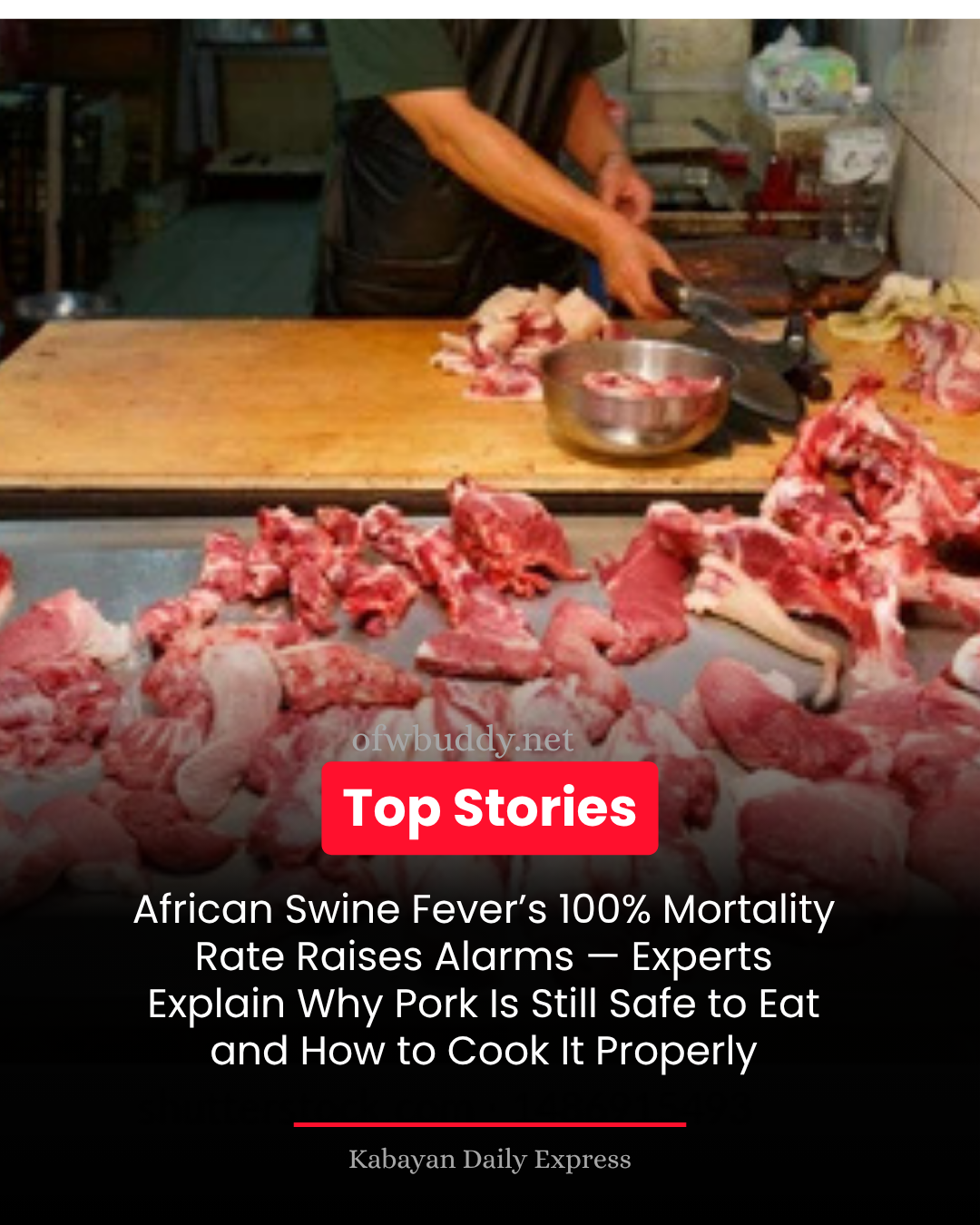October 25, 2025 – Taichung, Taiwan
Taiwan confirmed its first-ever case of African Swine Fever (ASF) after the Central Disaster Response Center detected the virus at a food waste pig farm in Taichung, officials announced on October 25. The government will formally notify the World Organization for Animal Health (WOAH) and temporarily suspend all pork exports as a precautionary measure.
The announcement has sparked widespread public concern, with many questioning whether it is still safe to eat pork. In response, the nutrition experts from Good Food Class released an educational guide addressing common misconceptions and advising the public to remain calm while practicing proper food safety and biosecurity measures.
What Is African Swine Fever?
According to Good Food Class, African Swine Fever is a highly contagious viral disease that affects pigs and wild boars. Caused by a DNA virus, ASF can lead to mortality rates approaching 100%. Currently, there are no available vaccines or treatments for the disease, making prevention and control critical.
How Does the Virus Spread?
ASF can spread through multiple routes. While the primary mode of transmission is direct contact with infected pigs, the virus can survive for extended periods under various conditions:
-
Up to 1,000 days in frozen meat
-
Around 100 days in refrigerated meat
-
Up to one month in pig housing
-
Approximately 11 days in feces
Common transmission pathways include:
-
Secretions and waste from infected pigs
-
Contaminated pork products or kitchen waste
-
Vehicles, clothing, or equipment exposed to the virus
-
Bites from soft-bodied ticks, which can carry the virus
Can Humans Be Infected by Eating Contaminated Pork?
Health experts stress that ASF poses no threat to human health. The virus only infects pigs and cannot survive the acidic environment of the human stomach. Stomach acid typically has a pH level of 1.5–3.5, which effectively destroys the virus.
Good Food Class advises consumers to purchase pork products bearing official slaughter inspection stamps and to cook meat thoroughly before consumption. Proper cooking not only ensures the destruction of any residual pathogens but also minimizes the risk of other foodborne illnesses.
Public Safety and Prevention Measures
Although ASF does not affect humans, its presence could cause serious economic damage to Taiwan’s pork industry. Authorities and experts are urging the public and pig farmers to take the following preventive actions:
-
Avoid bringing or mailing pork products into Taiwan. Even sealed or processed products may pose a risk if not properly sterilized.
-
Farmers should maintain strict disinfection and quarantine protocols. Those returning from ASF-affected countries should avoid contact with pigs for at least one week.
-
Report any abnormal symptoms or sudden deaths in pigs to local agricultural authorities immediately.
Good Food Class emphasized that responsible actions from both the public and farmers are essential to contain the spread of the virus. “There is no need for panic,” the group said. “By purchasing certified meat, practicing proper hygiene, and supporting government prevention efforts, everyone can help protect Taiwan’s livestock industry.”

